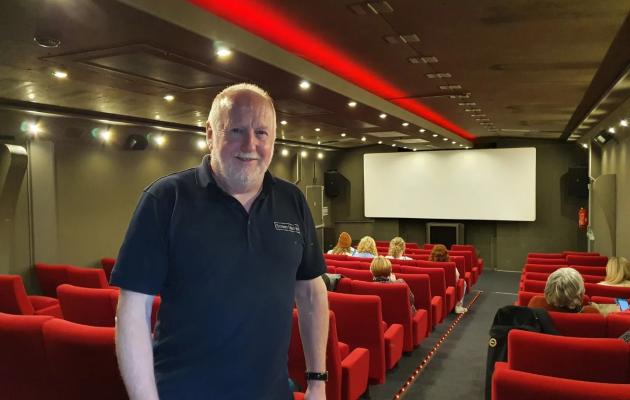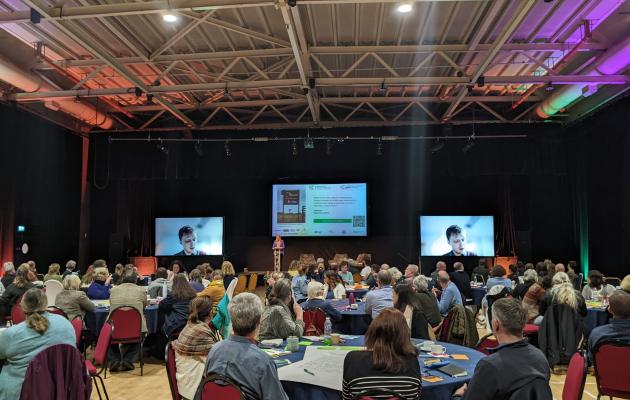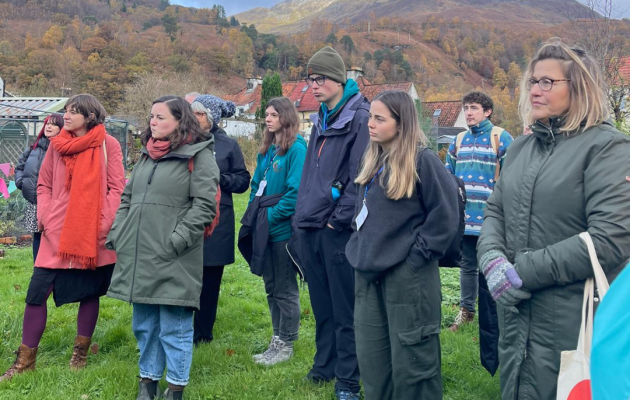


The Scottish Rural & Islands Parliament (SRIP) returned for its fifth edition with three days of dynamic discussions and engagement with rural and island communities across Scotland. Hosted at the Nevis Centre in Fort William from Wednesday 1st to Friday 3rd November, this biennial gathering continues to show itself as a vital platform for amplifying the voices of rural and island residents in shaping policies that affect their lives.
The SRIP is a grassroots-driven participatory assembly that brings together individuals, community members, businesses, and organisations interested in rural and island Scotland. It provides an inclusive space for participants to engage in meaningful discussions, share expertise, and further collaborate on issues of vital importance to these communities, in addition to recognising and celebrating the important assets in rural and island areas of Scotland.
Under the overarching theme of "Village Halls and Community Spaces," this year's SRIP was heralded a great success as over 350 delegates met in person, with over 100 online, exploring a range of relevant topics, including democracy and local governance, climate change, water resources, housing, childcare, rural cost of living, digital connectivity and youth perspectives. Discussions addressed the challenges and opportunities faced by rural and island communities, fostering a deeper understanding of the needs and aspirations of rural and island Scotland and linking these demands with policymakers and politicians.
On the first day, the inaugural Scottish Rural & Islands Youth Parliament took place at Caol Community Centre. This youth-focused event engaged individuals aged 16 to 30 in discussions relevant to them, enabling them to reflect on their lived experiences and articulate what is important to them. Joined by Highlands and Islands MSP, Emma Roddick, and Cabinet Secretary for Rural Affairs, Land Reform and Islands, Mairi Gougeon, youth delegates had a unique opportunity to work together on a range of topics from housing to transport to food and agriculture and put forward key demands they want decision-makers to act upon.
On Thursday the 2nd of November, delegates explored the Lochaber area with support from Stagecoach and Sheil Buses. Through study visits, attendees explored a range of topics including culture, energy, wellbeing and transport, visiting areas including Arisaig, Arkaig, Ballachulish, Glenfinnan, Kentallan and Duror, and Spean Bridge. In the evening, back at the Nevis Centre, local musicians played traditional music over dinner with a ceilidh rallying everyone to the dancefloor.
On the final day, Friday the 3rd of November, Ellie Moore, Engagement Ranger at Nevis Range Partnership, read out the statements from the Youth Parliament and was met with a huge round of applause given the profound urgency of young people’s demands. A panel debate on the future of rural and island Scotland then proceeded, welcoming to the stage the Depute First Minister, Shona Robinson, COSLA’s Community Wellbeing Spokesperson, Councillor Maureen Chalmers, and Liam Glynn, Professor of General Practice at the University of Limerick.
This year’s SRIP was unique in many ways, not least because it has been the only parliament to be held in the Highlands, but it had a huge focus on inclusivity, including from young people and island communities. With the announcement of the Rural Delivery Plan in 2026 from the Scottish Government, there are also key levers to continue to make sure rural and island communities are heard and listened to.
The SRIP is coordinated by Scottish Rural Action, a charity supporting the rural movement in Scotland, and the Scottish Islands Federation, which unites island communities to promote their interests and drive positive change. The event is also supported by a wide range of organisations and curators who play an essential role in shaping and stimulating the discussions.
Speaking on behalf of the coordinating organisations, Theona Morrison, Chair of Scottish Rural Action offered her thanks to the Nevis Centre, who hosted this year’s Rural & Islands Parliament, and to the many organisations who partnered to deliver it. She continued:
“Rural and island places make up 98% of our country’s landmass. They are the locus of our natural assets, of our capacity to produce food and generate energy, and of a rich enterprising, cultural and linguistic tapestry. We made the most of this opportunity in Fort William to shine a light on the solutions that rural and island communities offer to global challenges. I was particularly excited about the inaugural Scottish Rural and Islands Youth Parliament. Over 75 young people from across Scotland joined together to identify clear actions they want to see to better secure their futures.”
On behalf of the Scottish Islands Federation, chair Camille Dressler says:
“The Scottish Islands Federation was delighted to welcome representation from more than 20 Scottish Islands at this year's Scottish Rural & Islands Parliament. From Orkney to Arran to Uist, each Island has their unique challenges and ideas of how to progress. Through the SRIP, folk came together to amplify their voice, foster innovation and strengthen connections between communities, organisations and decision-makers. It was a great success – you could feel the energy and enthusiasm in the room.”
The insights and outcomes of the SRIP will directly influence the Scottish Government's policy-making process, contributing to the development of the Rural Delivery Plan in 2026 and the National Islands Plan Review. The outputs from all the sessions will also be taken on a roadshow in rural and island locations across Scotland in February 2024, further extending the impact of the discussions and enriching the insights gathered at the parliament.


